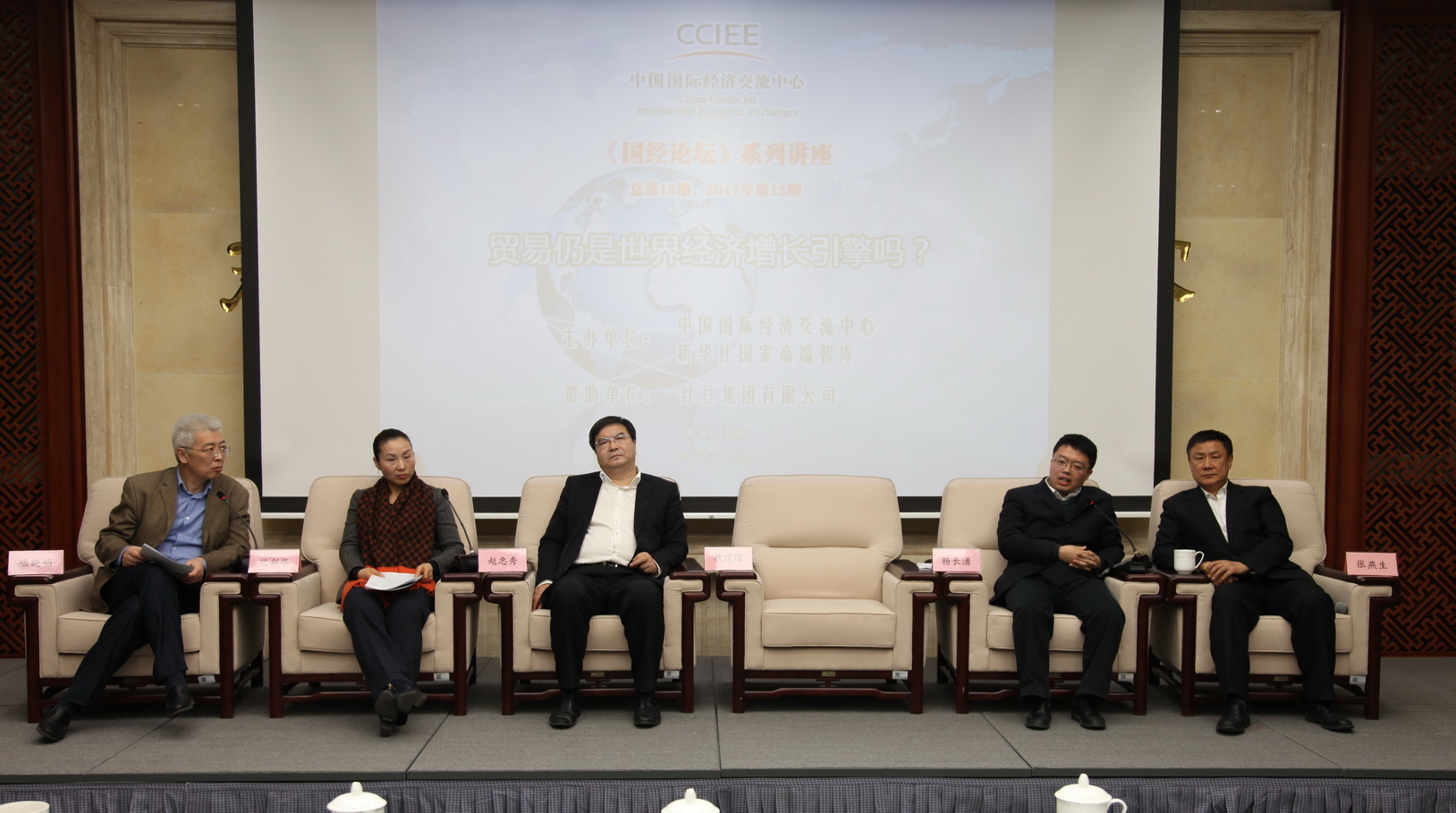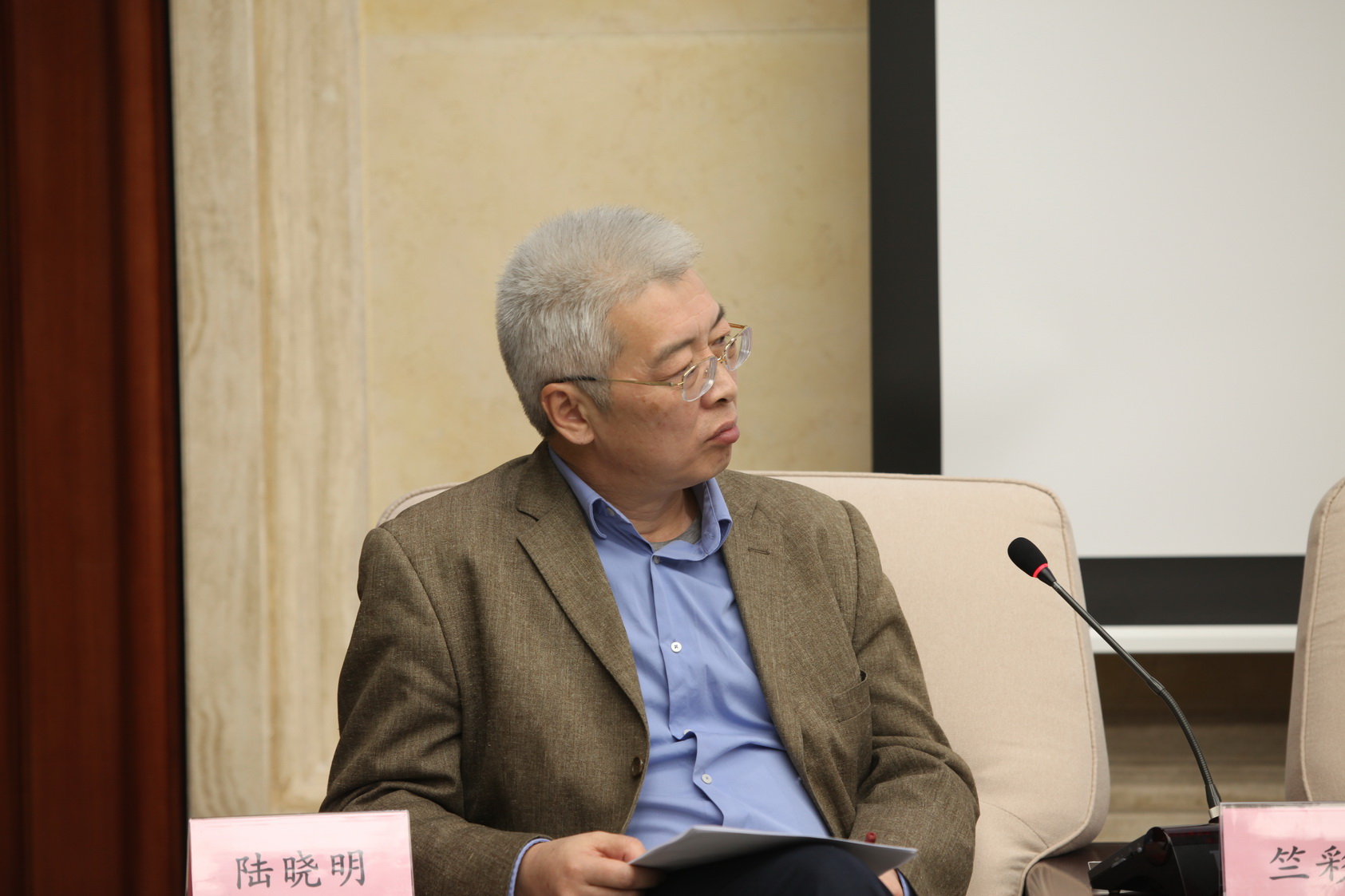15th CCIEE Symposium: Is Trade Still the Engine of World Economic Growth?
- Time:2017-11-29
- source:CCIEE
In the afternoon of 28 November 2017, CCIEE and the Xinhua News Agency National High-end Think Tank co-hosted the 15th CCIEE Symposium under the theme of Is Trade Still the Engine of World Economic Growth? Wei Jianguo, Vice-Chairman of CCIEE, made an opening remark. Zhang Yansheng, Chief Researcher of CCIEE, Zhao Zhongxiu, Vice Chancellor of the University of International Business and Economics, Zhu Caihua, Deputy Director of the Institute of Foreign Trade at the Research Institute of the Ministry of Commerce, and Yang Changyong, Deputy Director of the General Research Office of the Institute of Foreign Economic Relations at the National Development and Reform Commission, delivered their presentations respectively. Lu Xiaoming, Researcher of the Xinhua News Agency National High-end Think Tank, presided over the symposium.

At the seminar, experts held in-depth discussions on the current international trade, the contribution and role of trade in the world’s and China’s economy, and how China is building its trading power amid anti-globalization. Since the outbreak of the global financial crisis in 2008, global trade growth has been thwarted, the ratio of trade growth to GDP growth, or the trade resilience, has maintained at a low level, triggering wide debates on the role of foreign trade in world economic growth.

The experts believe that anti-globalization and global trade protectionism are among the main reasons of the global trade growth rate falling below global GDP. Moreover, the strategy of re-industrialization in Europe and the United States has resulted the return of the localization of trade and industrial value chains, leading to a drop in the demand for the intermediate trade. Apart from that, the international division of labor has been changed dramatically by artificial intelligence, robotics, industrial net of things, cloud computing and big data to form a decentralized, individualized and fragmented trend. Cross-border e-commerce, express trade and small-sum trade are statistically underestimated. Due to the fact that higher trade elasticity of developed economies than that of the emerging markets and developing countries, the gradual decline in the former’s share of trade will exacerbate the slowdown in trade growth. Lastly, investment in foreign trade, in particular imports, will lead to greater demand than consumption. The reduced investment in developed economies will intensify decline in trade.

In addition, experts said that the role of foreign trade in national economic growth must not be measured only by the contribution rate of net exports to GDP growth, instead, a more comprehensive assessment should be adopted. From a production point of view, foreign trade is conducive to accelerating scientific and technological innovation, raising labor productivity and creating more jobs by stronger competition. From a perspective of demand, foreign trade will provide more diversified and lower-priced Product and lastly, from a perspective of social development, foreign trade is also beneficial to reduce the number of poor people.

From now on, China will implement the strategy of creating a strong trading nation by developing innovation-based high-end products and services; foster a new format of green trade for the belt and road project; create a better environment for cross-border e-commerce; build new industries driven by new technologies, manufacturing and cooperation in order to avoid overemphasizing services/export/ quantity while undervaluing manufacturing/import/ quality. We must be guided by the spirit of the19th National Congress of the CPC, and to speed up the transformation of the mode of foreign trade development, cultivate new advantages in foreign trade, consolidate China’s trading competency and promote the building of a powerful trade country.
In the Q&A section, experts answered various questions from the media and audience. Researchers from CCIEE, representatives from enterprises, research institutions and news agencies took part in the event.
